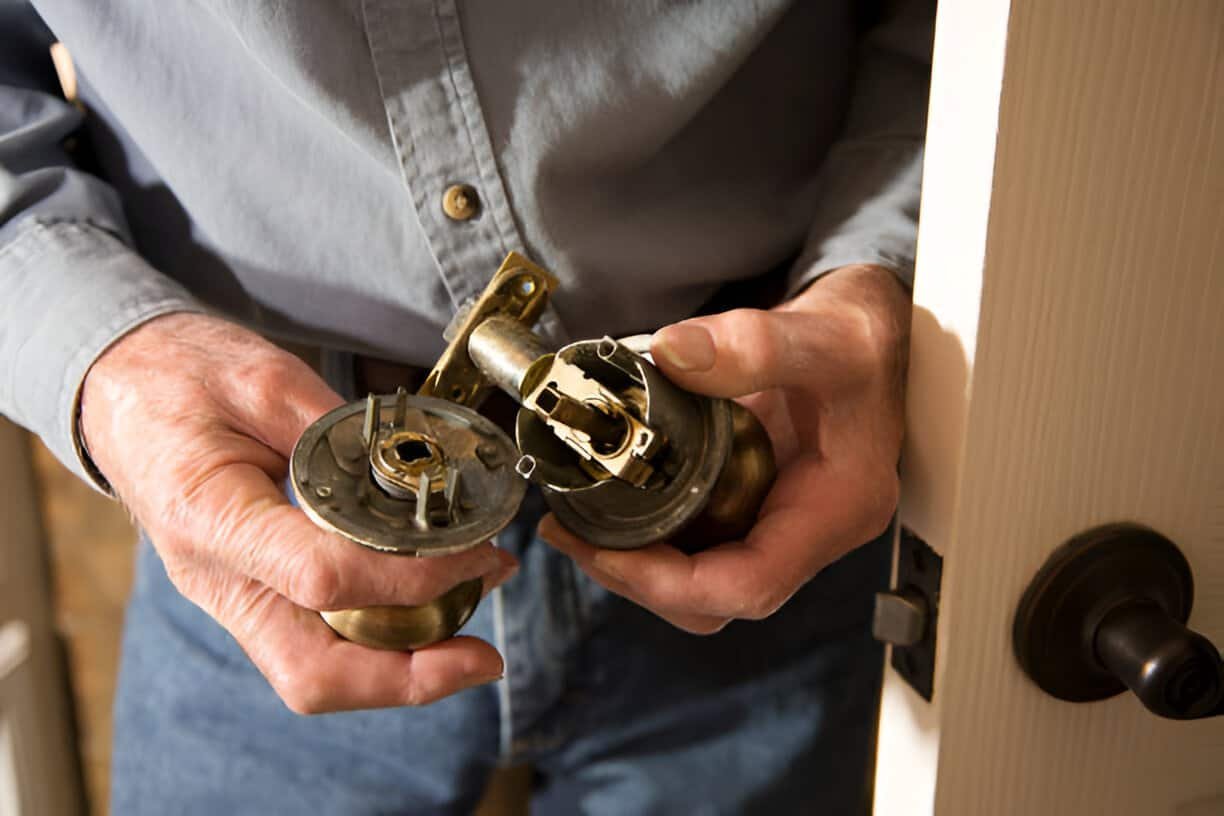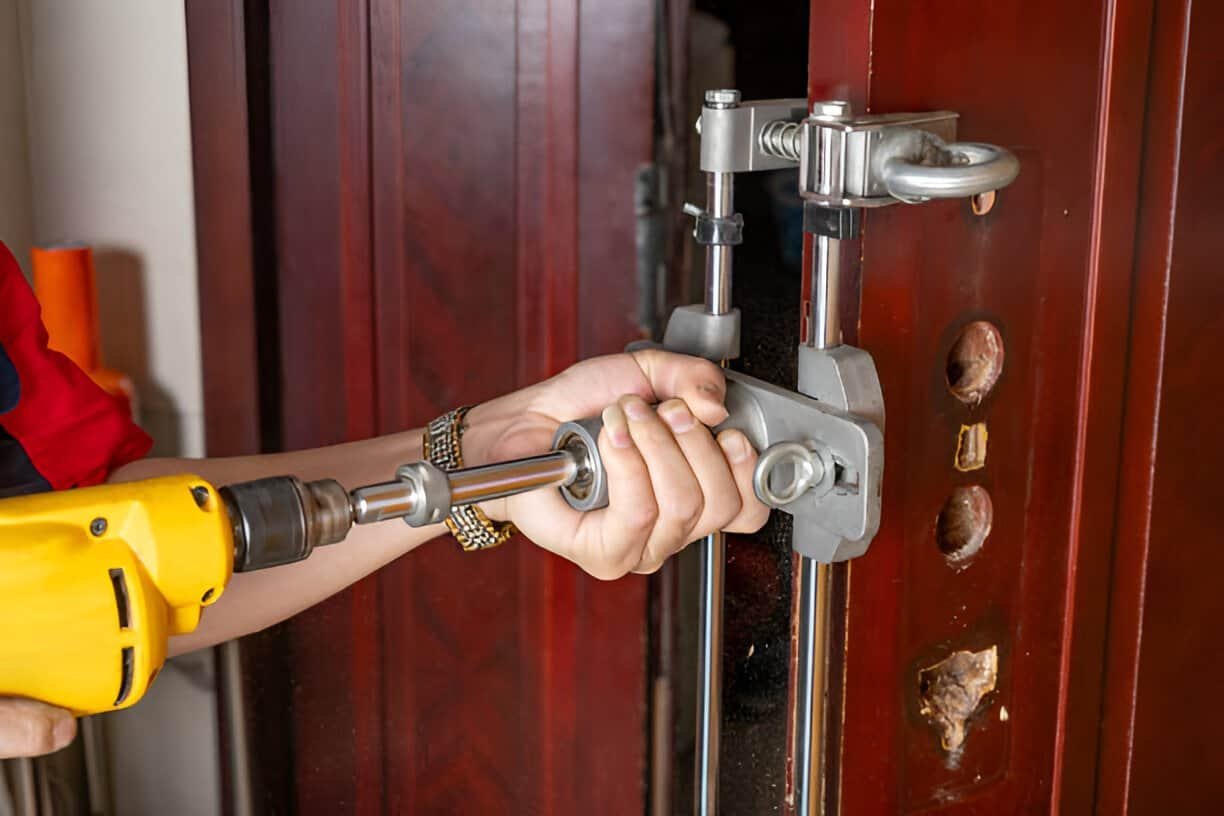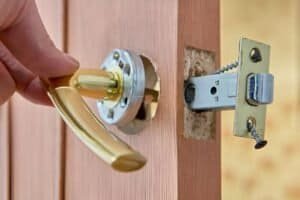Locks are integral parts of any residential and commercial security system. They may look small and fragile externally, but locks are internally complex. With this, they require regular lock maintenance and repair to regulate their functionality and continuously provide security to your premises.
Like most modern machinery, locks must be maintained to extend their lifespan. However, not all locks are the same, meaning different locks undergo different maintenance routines. Needless to say, regular lock maintenance is a necessity for all home and business owners—and let us tell you why.
Why is Regular Lock Maintenance Important?
Locks are not just physical representations of security, they also mentally give home and business owners the peace of mind they deserve. Locks have secured areas for thousands of years, and it doesn’t hope to stop now. Unfortunately, people do not even bat an eye towards locks—only thinking of them as pawns to their security system. Give them the love they deserve by letting them undergo regular lock maintenance.
Locks are prone to extreme weather conditions and other external factors like dust and dirt. These lead to locks malfunctioning and, in time, becoming unfixable. Without consistent maintenance routines, locks can become victims of wear and tear and worn out. This threatens your property’s safety, making them more prone to forced breaches and unauthorised access. Regular maintenance mitigates that possibility, if not completely erased.
One factor that home and business owners overlook is the longevity of their locks. Regular lock maintenance prolongs the lifespan of locks. Not only does this service prevent further damage to your locks, but it also rejuvenates your lock as if it’s as good as new. Congratulations, you have just saved yourself from breaking the bank by buying locks once every two weeks.
How Do I Maintain My Locks?
Keeping locks in optimal condition is not easy, but there are simple ways to keep your locks from breaking down.
Looking for Possible Damage
The first step to addressing lock problems is to find them. It doesn’t need to be done every day, but inspecting for damage to your locks is the equivalent of “prevention is better than the cure.” You proactively stay on top of your security system by looking for parts needing further inspection.
Routinely Clean the Locks
Locks encounter many fatal enemies throughout its service. Among them are dirt, dust, and all kinds of grime. These small particles can build up inside your locks. If not properly maintained, the locks can accumulate damage and break down when you least need them to.
To prevent this from happening, routinely clean your locks with a dry cloth and clean out the gunk inside with compressed air. This effectively removes whatever was inside the locks and mitigates the chances of wear and tear. You can also use dry lubricants to ease the lock’s interior system.
Contact a Professional Locksmith
Calling a professional locksmith during emergencies is the best course of action. If you experience problems with turning or fitting the key, it is advisable to contact a local locksmith to start the repairs (and maintenance, if you choose to do so). Leave the locks to the professionals to avoid further damage to the locks or even the property. This could cause even more problems to your security.

The Crucial Role of Regular Lock Maintenance
Regular lock maintenance brings an arsenal of benefits to the table. However, none are more important than enhanced security, continuous reliability, and durability. You proactively reduce the risk of attempted breaches by simply having your locks under consistent maintenance. On top of that, your locks also function perfectly and without hassle. Maintenance routines scrape the bottom of the barrel, even determining whether a lock is prone to physical breaches like picking and jamming.
These maintenance routines also keep your locks from breaking down—effectively extending the lock’s lifespan. Locks have always been meant to last long as a home or business’s first line of defense, but that’s not always the case. Frequent usage, harsh conditions, residue build-up, and more can affect the lock’s functionality and durability.
Business premises must acknowledge the importance of locks. Owning a business means you have people and valuables to protect, not to mention the safety of your customers and clients. Trust between you, the employees, and your clients will be easier to handle if they know you prioritise their safety. Contact a commercial locksmith and schedule a maintenance routine now!
Just like cleaning shoes or re-stitching clothes, regular lock maintenance saves you money for the future. Pointing out certain lock issues now instead of later could be the lifeline it needed after years of service. With regular check-ups and repairs, the need for a lock seems unlikely. Avoiding the worst possible outcome for a long period is the priority of maintenance routines.
How Frequently Should You Schedule Lock Maintenance?
Fortunately, home and business owners do not have to undergo lock maintenance frequently. Once every six months is a good threshold to keep in the back of your pocket. However, the frequency can alter depending on what lock it is, where it is, and how often people use it.
What type of lock it is plays a crucial role in assessing when to have it maintained. Traditional locks would need fewer maintenance routines than digital locks or smart locks. The more complex and advanced the systems are, the more frequently it needs to be checked. As for its location, locks stationed in entrances and exits would experience more usage and, therefore, higher chances of repair.
Final Thoughts
Regular lock maintenance is a necessity, not a luxury. It is crucial to any home and business security systems to have fully functioning locks to ensure the protection of your family, assets, and valuables. Additionally, this service lessens the chance of unauthorised breaches and access. Regular maintenance is also the secret to lengthening a lock’s lifespan, minimising the constant need for replacement locks.
The frequency of regular lock maintenance relies on the type of lock, where it is stationed, and how many people have access to it. This makes it easier for commercial and residential locksmiths to give clients peace of mind thanks to the locks.





